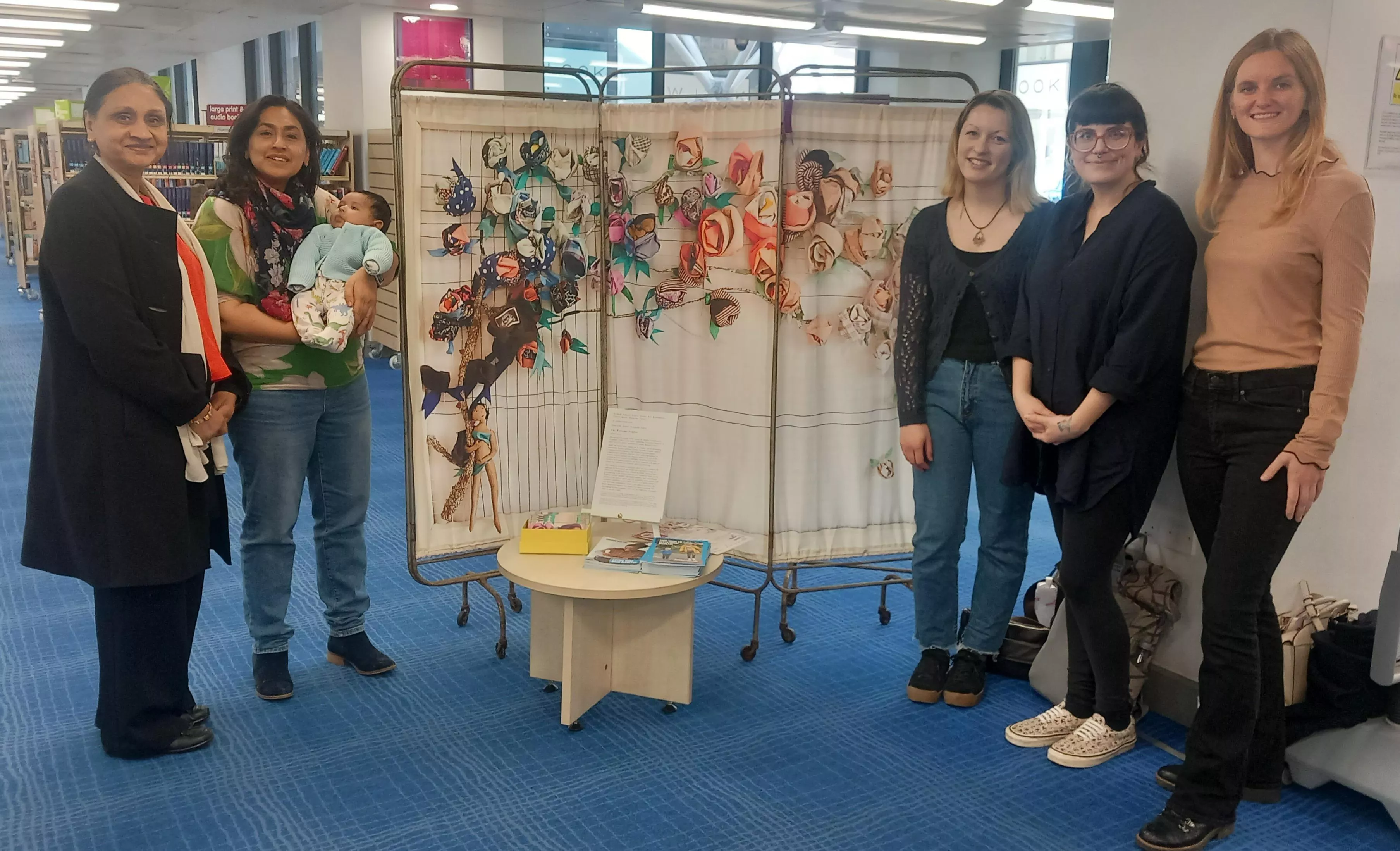
A fantastic project (Art for Change through Engagement) co-created by researchers we fund and an artist from the Cambridge Art School was recently showcased at the Cambridge Festival.
The art project involves women who've had gestational diabetes and took part in the Diabetes UK-funded DiGest study, a reduced calorie intervention for women with gestational diabetes.
It aims to promote inclusivity and make sure all women feel welcome in a research and clinical setting, as well as help to engage the wider public with the research and the experiences of women with gestational diabetes.
We spoke to Danielle Jones, a third year PhD student, who helps to run the DiGest study, and artist, Amanda Lavis, to find out more about this exciting collaboration.
“It was great to have two different institutions that do completely different things coming together”, says Amanda.
“It really opened my eyes to the many ways we can do public engagement”, Danielle adds.
What is gestational diabetes?
Gestational diabetes is the most common complication of pregnancy, affecting about 35,000 women in the UK every year.
Your risk of gestational diabetes is increased if you are living with overweight. The condition can also increase the risk that you or your baby will develop type 2 diabetes later in life.
Previous research has also shown clear inequalities when it comes to long-term health outcomes for Black and South Asian women previously diagnosed with gestational diabetes, who are up to three times more likely develop certain long-term health conditions, including cardiovascular disease, compared to White women.
“I see first-hand how Black and South Asian women are disproportionately affected by gestational diabetes, and how underrepresented they are in research. I want to help break down those barriers and promote inclusivity in this space”, says Danielle.
Coming up roses
The artwork showcased at the Cambridge Festival was created and informed by researchers and women who represent a range of ethnicities and who have taken part in the DiGest study.
Pregnant women, mothers and family members contributed textiles which they feel represent a specific part of their culture and attended a workshop to turn these textiles into petals which in turn were combined to create a rose bush.
A big source of inspiration came from the name of the hospital where the project is based, the Rosie Hospital, as well as recognising just how many people it takes to raise a child. There’s an entire ecosystem of friends, family, neighbours and professionals who can play a part.
“We talked about how you need a community to help you raise baby, which is why we decided to use a rose bush rather than a single rose. Each part of the final piece forms a part of someone’s journey, which can be recognised as being part of a much larger network”, says Amanda.
“I loved how the simple act of crafting could bring about some great conversations. One participant took the crafting guide home and continued making petals at home with her mother and daughter without being asked – I was so touched by that, that was a real highlight for me”, adds Danielle.
All the women who took part had common experiences and shared struggles, including finger pricking during pregnancy. The thorns on the rose bush are to symbolise something that is both painful and protective.
What’s next?
We asked Danielle what she’d most like to see for the care women with gestational diabetes in the next five years.
“I’d like to see some clarity in the dietary recommendations for managing gestational diabetes, continuous glucose monitoring to become more widely available, and some focus placed the impact on mental health”, says Danielle.
This project is a reminder of how important it is for us to work collaboratively so that the health inequalities in diabetes care can be overcome.
